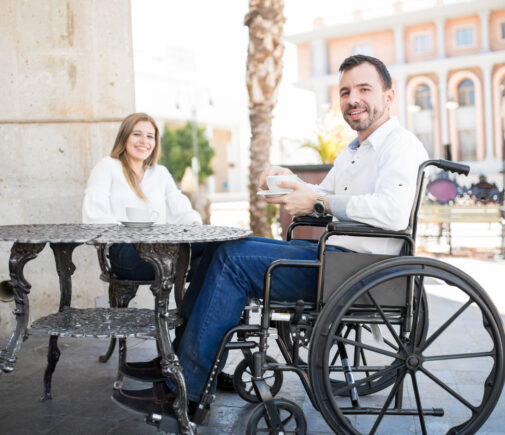Raymond K. Says:
I am a C5-C6 quadriplegic, in an electric chair, and would like to live overseas. I’m 64 and would love to live in warm weather year-round on $2,000 a month.
Can you help?
IL Contributor Tony Boatright Says:
Hi Raymond,
Moving to a foreign country is an adventure. Having a disability adds a degree of difficulty to the process, but that doesn’t mean a person with a disability can’t do it. It just takes a little more preparation. I speak from experience. I’m a quadriplegic who moved to Panama by myself 11 years ago.
Whether able-bodied or dealing with a disability, here is a three-step process to help anyone considering an international move:
- Do your homework
- See for yourself
- Try it before you buy it
Why do you want to relocate?
You’re looking to fulfill a dream. Brainstorm a list of what you want in your new home. Looking at your list with fresh eyes after a week makes it easier to group your items.
Create three groups:
- Must have
- Would like to have
- Nice but unnecessary
Your medical needs should top your Must Have list. A person with a disability needs to conduct specific research. What are your personal accessibility and accommodation needs?
Being flexible and accepting that you will face some limitations opens the world for you. I speak from years of experience traveling in a wheelchair. (See some of my other IL articles here.)
Your medical insurance may not cover you living overseas. International insurance is an option that can be added depending on your budget.
Specialized medical care may not be widely available. The exact medications you take may not be available. The country might not allow you to have your medication shipped to you. Even if they do, will you have to return to your country for a doctor’s visit to renew your prescriptions? Medical equipment needs and/or repairs for your medical equipment must be considered.
The purpose of your initial research is to determine where you want to visit. I highly recommend multiple visits. Your budget and available time will dictate if you can visit multiple cities or countries.
One important decision will help you focus on potential locations to live:
Would you like to live in an area with a large expat community?
Or would you prefer to live with the locals? (Living with the locals will put more emphasis on learning or improving your language skills.)
Language is always an issue! I don’t care how many times you see statements like “English is widely spoken.” If you’re going to live there, you must learn basic communication in the local language.
Simple research will show you many positives and negatives of the country. Start with two of the most important issues: political and economic stability. The currency exchange rate is vital information. Fluctuation can change your income for better or worse every month. Research the fluctuation history of the exchange rate.
The first trip there is a research visit, not a time to play tourist. Look at the real estate market to identify areas or cities of interest. While you can see what purchase prices are, your first step should be looking at rental spaces, since thisis best done on-site.
A short-term rental space will give you an opportunity to begin exploring the country for a better long-term rental.
The decision to make an extended visit requires serious preparation.
There are many sources for in-depth information. One option is a relocation conference. International Living has a wealth of resources available with general and country-specific relocation conferences, tons of website info, and online offerings.
The next IL conference takes place in Denver at the beginning of September. You can get all the details of that here.
Important information to discover includes:
- How long can you stay on a tourist visa?
- Can you live there as a perpetual tourist by periodically leaving the country to renew your tourist visa?
- What residency visa options are available?
- Do any visa options offer additional benefits? (Retirees are eligible for a benefits package offering discounts and other perks in many countries.)
For more adventure, try short-term rentals in different cities before making a long-term relocation decision.
What is your fallback option?
Make sure you have a plan to return home if your extended stay does not work out. Failure does not mean international relocation is not for you. The lessons you learn might help you find a different city or a different country that works better for you.
Got a Question?
Send your thoughts to mailbag@internationalliving.com. We’ll post and respond to as many of your emails as we can right here in the e-letter.

